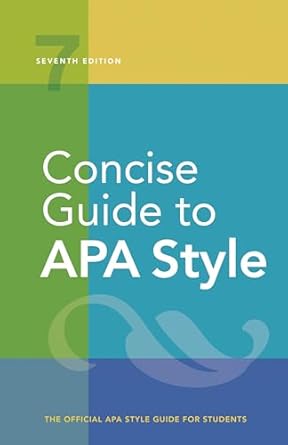[toc]
block quotations guide examples for academic writing
Concise Guide to APA Style: 7th Edition (OFFICIAL)
Page 220 Review
Understanding Block Quotations and Citations in Academic Writing
This analysis delves into the intricacies of using block quotations and citations, as outlined in academic writing guidelines.
Correct usage is crucial for maintaining academic integrity and providing proper context for borrowed material.
Block Quotations: A Detailed Look
A block quotation is used when quoting a passage of text that is longer than a certain length (typically 40 words or more).
It is indented from the left margin and does not use quotation marks.
The citation follows the quotation.
Parenthetical Citation in Block Quotations
When using a parenthetical citation, the page number follows the quotation’s final punctuation.
For example:
“Inner speech is a paradoxical phenomenon.
It is an experience that is central to many people’s everyday lives, and yet it presents considerable challenges to any effort to study it scientifically.
Nevertheless, a wide range of methodologies and approaches have combined to shed light on the subjective experience of inner speech and its cognitive and neural underpinnings.” (Alderson-Day & Fernyhough, 2015, p. 957)
Note the period is placed before the closing parenthesis.
Narrative Citation in Block Quotations
In a narrative citation, the author’s name is integrated into the sentence.
For instance:
Flores et al. (2018) described how they addressed potential researcher bias when working with an intersectional community of transgender people of color:
“Everyone on the research team belonged to a stigmatized group but also held privileged identities.Throughout the research process, we attended to the ways in which our privileged and oppressed identities may have influenced the research process, findings, and presentation of results.” (p. 311)
Handling Multi-Paragraph Block Quotations
When a block quotation consists of multiple paragraphs, all paragraphs are indented.
“Regarding implications for chronic biases in expectation formation, in order to accurately estimate whether people are likely to form positive or negative expectations on any given occasion, it is necessary to go beyond simply considering chronic individual differences and identify the factors that make people more likely to form expectations in line with one bias or the other.
The present research sheds light on this issue by identifying a crucial distinction in the operation of these two trait biases in expectation formation.
Specifically, people’s valence weighting biases and self-beliefs about the future appear to shape expectations via qualitatively distinct processes.” (Niese et al., 2019, p. 210)
Quoting Material Without Page Numbers
A significant challenge arises when quoting from sources that lack page numbers, such as webpages, websites, or some ebooks.
In these cases, providing readers with an alternative method of locating the quoted passage is essential.
As the original text states:
“To directly quote from written material that does not contain page numbers (e.g., webpages and websites, some ebooks), provide readers with another way of locating the quoted passage.”
The guideline emphasizes the need for clarity and accessibility, suggesting that any approach that helps readers find the quotation is acceptable.
Strategies for Locating Quotations Without Page Numbers
The source material suggests using the approach that will best assist readers in finding the quotation.
While specific methods aren’t detailed, some options could include:
- Section Headings: Referencing the specific section heading within the online document.
- Paragraph Numbers: Indicating the paragraph number within a section.
- Keywords: Including unique keywords from the surrounding text to aid searching.
The key is to provide enough context for readers to easily locate the original source material.
Conclusion
Understanding and correctly implementing block quotations and citations are paramount for academic writing.
Whether dealing with page numbers or navigating the challenges of online sources, adhering to these guidelines ensures clarity, credibility, and proper attribution.
Buy full ebook for only $18: https://www.lulu.com/shop/american-psychological-association/concise-guide-to-apa-style-7th-edition-official/ebook/product-rmzpq54.html?page=1&pageSize=4

